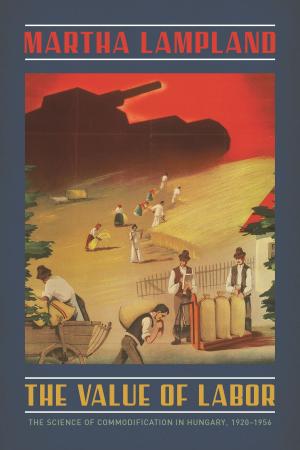Trams or Tailfins?
Public and Private Prosperity in Postwar West Germany and the United States
Nonfiction, History, Germany, Americas, United States, 20th Century| Author: | Jan L. Logemann | ISBN: | 9780226491523 |
| Publisher: | University of Chicago Press | Publication: | November 28, 2012 |
| Imprint: | University of Chicago Press | Language: | English |
| Author: | Jan L. Logemann |
| ISBN: | 9780226491523 |
| Publisher: | University of Chicago Press |
| Publication: | November 28, 2012 |
| Imprint: | University of Chicago Press |
| Language: | English |
In the years that followed World War II, both the United States and the newly formed West German republic had an opportunity to remake their economies. Since then, much has been made of a supposed “Americanization” of European consumer societies—in Germany and elsewhere. Arguing against these foggy notions*,* Jan L. Logemann takes a comparative look at the development of postwar mass consumption in West Germany and the United States and the emergence of discrete consumer modernities.
In Trams or Tailfins?, Logemann explains how the decisions made at this crucial time helped to define both of these economic superpowers in the second half of the twentieth century. While Americans splurged on private cars and bought goods on credit in suburban shopping malls, Germans rebuilt public transit and developed pedestrian shopping streets in their city centers—choices that continue to shape the quality and character of life decades later. Outlining the abundant differences in the structures of consumer society, consumer habits, and the role of public consumption in these countries, Logemann reveals the many subtle ways that the spheres of government, society, and physical space define how we live.
In the years that followed World War II, both the United States and the newly formed West German republic had an opportunity to remake their economies. Since then, much has been made of a supposed “Americanization” of European consumer societies—in Germany and elsewhere. Arguing against these foggy notions*,* Jan L. Logemann takes a comparative look at the development of postwar mass consumption in West Germany and the United States and the emergence of discrete consumer modernities.
In Trams or Tailfins?, Logemann explains how the decisions made at this crucial time helped to define both of these economic superpowers in the second half of the twentieth century. While Americans splurged on private cars and bought goods on credit in suburban shopping malls, Germans rebuilt public transit and developed pedestrian shopping streets in their city centers—choices that continue to shape the quality and character of life decades later. Outlining the abundant differences in the structures of consumer society, consumer habits, and the role of public consumption in these countries, Logemann reveals the many subtle ways that the spheres of government, society, and physical space define how we live.















